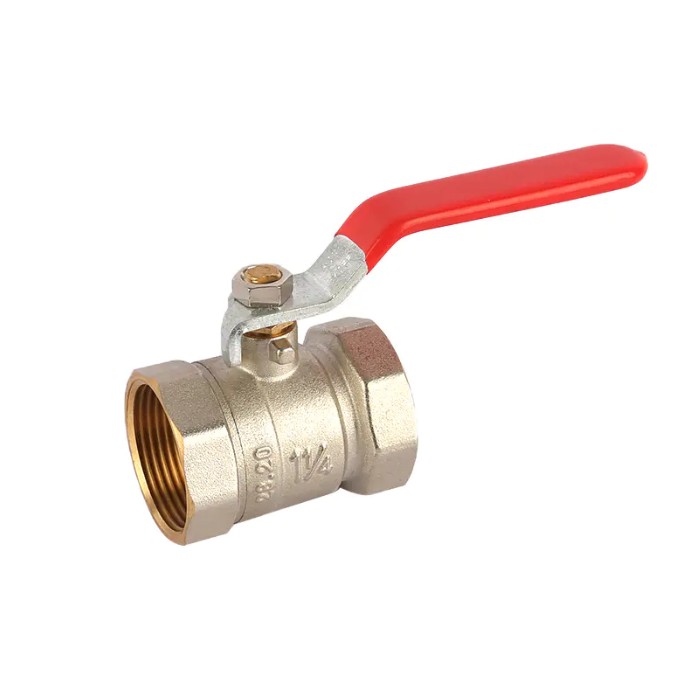Understanding Brass Ball Valves
A Brass Ball Valve is a mechanical device used to control the flow of fluids, typically liquids and gases, within a pipeline or plumbing system. It gets its name from the spherical shape of the valve's control mechanism, a ball with a bore or hole drilled through it. By rotating the ball, users can control the flow of fluid through the valve, allowing it to be fully open, fully closed, or anywhere in between.
Key Features and Advantages
Durability: One of the standout features of Brass Ball Valves is their durability. They are constructed from high-quality brass, a metal known for its resistance to corrosion, rust, and wear. This durability ensures a long service life, even in demanding environments.
Versatility: Brass Ball Valves are incredibly versatile and can handle a wide range of fluids, including water, oil, gas, and more. Their adaptability makes them suitable for various industries and applications.
Precision Control: These valves offer precise control over fluid flow. The quarter-turn operation of the valve allows for quick and accurate adjustments, making them ideal for applications that require precise flow control.
Low Maintenance: Brass Ball Valves are relatively low-maintenance devices. With their robust construction and minimal moving parts, they require little upkeep, reducing downtime and maintenance costs.
Reliability: The simplicity of Brass Ball Valves contributes to their reliability. They are less prone to leakage or failure compared to other valve types, making them a preferred choice for critical applications.
Applications
Brass Ball Valves find widespread use across various industries and applications:
Plumbing Systems: In residential and commercial plumbing, Brass Ball Valves are commonly used for shut-off and control of water supply lines, allowing for easy maintenance and repairs.
HVAC Systems: These valves are integral in heating, ventilation, and air conditioning systems, controlling the flow of hot or cold water and refrigerants to maintain temperature control.
Oil and Gas Industry:
Brass Ball Valves are used in pipelines and refineries to control the flow of oil and gas, ensuring safety and operational efficiency.
Chemical Processing: In chemical plants, these valves are employed to control the flow of chemicals and other corrosive substances, benefiting from their resistance to corrosion.
Agriculture: Brass Ball Valves are used in irrigation systems to control the flow of water to different parts of fields or crops, improving water efficiency in agriculture.
Maintenance Tips
To ensure the longevity and reliability of Brass Ball Valves, it's important to follow some maintenance guidelines:
Regular Inspection: Periodically inspect the valve for signs of wear, corrosion, or leaks. Address any issues promptly to prevent further damage.
Lubrication: Apply a suitable lubricant to the valve stem to ensure smooth operation and prevent sticking or stiffness.
Cleaning: Clean the valve and remove any debris that may obstruct the flow or damage the seal.
Proper Installation: Ensure the valve is installed correctly, with the flow direction indicated by the arrow on the valve body.

